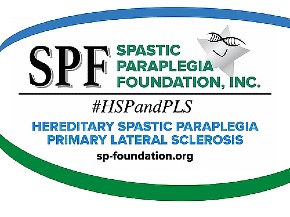Drug Treatment – Clinical Depression
For detailed information regarding drugs, contraindications and side effects, please visit Medline Plus Health Information and consult your doctor or pharmacist. Note: In case of emergency/ overdose the local poison control center can be reached at 1 (800) 222-1212.
It is not uncommon for individuals with PLS or HSP to experience symptoms of depression and even to develop clinical depression. Studies indicate that more than 80% of people with clinical depression can be treated successfully with medications.
There are several types of antidepressants. They differ in their side effects and, to some extent, in their level of effectiveness. No one type of medication for depression has been shown to be more effective than any other. The main difference between the types of medication (marketing and cost aside) is in the limitation of side effects.
Medications must be taken regularly for as many as eight weeks before the full therapeutic effect occurs. If there is little or no change after five to six weeks, a different medication may be considered. Medication is taken for a minimum of several months and may last up to a year or more.
Antidepressant medicines work by altering the level of certain chemicals in the brain that are responsible for transferring messages between brain cells. The dosage varies, depending on the type of drug, the person’s body chemistry, age and body weight. Dosages are generally started low and raised gradually until the desired effect is reached without troublesome side effects.
Antidepressants are divided into three classes:
-
Selective Serotonin Reuptake Inhibitors (SSRI)SSRI antidepressant effects are due to their action on a neurotransmitter called serotonin.
Celexa (citaloprm HBr) and Lexapro
Effexorxr
Fluoexetine by Eli Lilly
Zoloft (sertraline) -
Tricyclic Antidepressants
Though the tricyclics are as effective in treating depression as the newer antidepressants, their side effects are usually more unpleasant. They are generally used as a second-line or third-line treatment.
Most of these medications affect two chemical neurotransmitters, norepinephrine and serotonin. There are many generics available:
-Amitriptyline (Elavil)
-Amoxapine (Asendin)
-Clomipramine (Anafranil)
-Anafranil (clomipramine)
-Doxepin (Sinequan)
-Imipramine (Tofranil)
-Deseryl (trazodone)
-Norpamin (desipramin)
-Nortriptyline -
Monoamine Oxidase Inhibitors (MOI)
MAOIs are effective for some people with major depression who do not respond to other antidepressants. They are also effective for the treatment of panic disorder and bipolar depression.
MAOIs include phenelzine (Nardil), tranylcypromine (Parnate), and isocarboxazid (Marplan). Because substances in certain foods, beverages, and medications can cause dangerous interactions when combined with MAOIs, people on these agents must adhere to dietary restrictions. This has deterred many clinicians and patients from using these medications.
-
Other antidepressants
Tetracyclic antidepressants
These antidepressants stimulate norepinephrine and serotonin release. They also block two serotonin receptors that cause some of the side effects of SSRI’s (sexual problems, others) and causes less symptoms than the tricyclics (dry eyes, constipation). Medications include Ludiomil (Maprotiline) and Remeron (mirtazapine). Two other antidepressants that affect norepinephrine and serotonin are venlafaxine (Effexor) and nefazodone (Serzone).Bupropion (Wellbutrin, Wellbutrin SR)
Treats depression by affecting dopamine and norepinephrine, which are believed to help regulate your mood. Wellbutrin has not been associated with weight gain or sexual dysfunction. -
Other treatments for depression
Psychotherapy can be very helpful for people with severe or mild depression, and also in everyday coping with having a chronic illness. Please see Supportive counseling.
